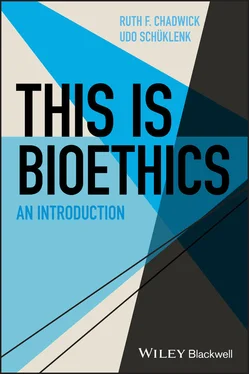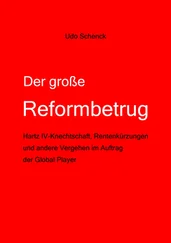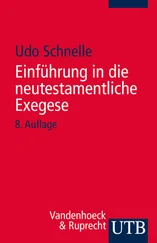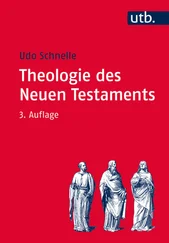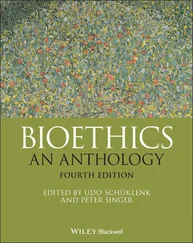For any bioethics book you hopefully will – you should! – wonder where the authors ‘are coming from’, what their prior ethical commitments are, and to what extent those commitments influence the content you are reading. Scholars with religious commitments are likely to produce content and arguments that differ from those who are atheists, philosophical utilitarians will differ in their writings from philosophical deontologists, and so on and so forth. We were cognisant of this issue and tried to give views a fair shake, as it were, that we disagree with. We also included references to further reading written by authors whose views we do not necessarily share. Make use of that information, reflect on the arguments given, and form your own considered views.
Ruth F. Chadwick
Udo Schüklenk
1.1 Imagine you were running a medical non‐governmental organization (NGO) established to preserve the lives of poverty‐stricken people in resource poor countries. Your NGO is also usually among the first to provide emergency assistance in case natural emergencies such as tsunamis strike. However, you did notice that agencies evaluating your efficiency 1 give you a below‐average ranking. That is a worry to your fundraising staff, mostly because you rely on donations and such ratings are said to impact eventually negatively, on your capacity to raise cash. You investigate what the problem is, and it turns out that the ratings agency is critical of your policy of responding mostly in cases of high‐impact disasters such as earthquakes, floods or civil wars, because they invariably require a highly resource intensive intervention. The agency’s verdict is that, on the same capital outlay, you could preserve more lives in developing countries if you aimed at establishing medium‐ to long‐term health delivery solutions, including setting up primary health care facilities, beginning vaccination programs, and other such relatively low‐cost means. Chartering private jets to fly emergency teams in response to disaster also preserves lives deserving to be rescued, the ratings agency says, but it demonstrably results in a substantially lower number of lives preserved than you could preserve if you dropped such actions in favor of working toward better health care delivery infrastructure in the countries you usually serve.
1.2 So, if your objective is to preserve lives in developing countries, the ratings agency might be correct in saying that you only preserve a suboptimal number of lives. You could do better. Should you change your policy though? After all, what the ratings agency proposes implies, if you were to act on it, is that those in most dire need, say those living in war‐torn countries with minimal health care infrastructure, should be toward the bottom end of your list of priorities, because assisting such people would cost more – per life preserved – to succeed. All other things being equal, more lives could be preserved if the NGO focused on preserving not those most in need but perhaps those whose lives are also threatened but who could be helped with the deployment of fewer resources. Should we only care about the number of lives preserved then, or do other factors matter, too, such as for instance that some people, possibly due to no fault of their own, live in particularly abysmal conditions? Should we factor in the amount of resources required to nurse such people back to a life that would permit them to live independently? Should the age of the to‐be‐rescued matter? Should it matter whether they have a family dependent on their support? Questions such as these are fundamentally ethical questions. And this chapter is about ethics, it is about right and wrong, good and bad, and how we can go about judging alternative courses of action that might be available to us.
1.3 What are the fundamental purposes of ethics then? Unsurprisingly, one of the purposes of ethics is to offer us clear action guidance when we are faced with a particular ethical problem . Of course, action guidance alone is not sufficient, or else an ethicist telling us what we ought to do is not much different to what a preacher or a taxi driver, engineer or medical doctor could tell us. Anyone can admonish us to do this or do that when faced with an ethically challenging situation. All of us almost certainly would have a view on what the NGO chief should be doing. In fact, most of us would probably happily add our two cents worth of opinion when asked what we think the NGO chief should do, policy wise. Thinking about what she ought to do engages with ethics. That takes us to the second objective of ethics. It is to do with the normative justification for the advice given. The preacher’s advice would derive its authority from the claim that she knows what a higher authority (say a God) wants us to do. Of course, many people today are atheists 2 or agnostics 3 , and many of those who are not atheists hold a large number of different deities dear to their hearts, all with competing action guidance derived from their respective sources of godly wisdom. For all we know, the taxi driver and engineer might just reply that that is how they feel, or possibly even think, about the problem at hand. Let us leave aside, for a moment, that in ancient Greece there were no taxi drivers or engineers as we understand them today. During those times their approach to ethics would have led to them being labeled as Sophists 4 , that is a group of philosophers who subscribe to the view that there are no objectively right or wrong answers to ethical questions, and that answers to ethical questions are at best reflective of someone’s subjective, strongly held beliefs or feelings. What gave way to the birth of modern ethics were philosophers like Plato 5 and his teacher Socrates who both believed that we can actually give right or wrong answers to questions about what is ethically good or bad. We will return to their take on ethics in a moment. How might the medical doctor in our example respond to the ratings agency’s ethical challenge? Trying to do better than the Sophists of the world, she could refer to guidance documents issued, for instance by her national medical association’s ethics people 6 , or those issued by the World Medical Association 7 , a worldwide umbrella organization of national medical associations, or possibly the World Health Organization 8 . But what if these organizations have actually omitted to address the problem at hand in their guidance documents? And, even if they haven’t, quotes from a document don’t constitute an ethical justification. What if the document quoted got it wrong? It turns out, we have good reason to be skeptical about famous historical medical guidance documents such as the Hippocratic Oath 9 . Robert M. Veatch explains why the Hippocratic Oath isn’t a document medical professionals ought to aspire to. According to Veatch just about everything is wrong about it, from its pledge to questionable Greek deities to a cultish understanding of medicine as a secretive practice to practical guidance that prioritizes individual patient interest always over the greater good of the society (Veatch 2012a, 10–29). To put it in Veatch’s own words, ‘the Oath is so controversial and so offensive that it can no longer stand alongside religious and secular alternatives. […] The Hippocratic Oath is unacceptable to any thinking person. It should offend the patient and challenge the health care professional to look elsewhere for moral authority’ (Veatch 2012a, 1). Veatch tells us, somewhat reassuringly, that the Oath today is used in so many variations in the world’s medical schools that sometimes only fragments of the original document seem to remain (Veatch 2012b).
Читать дальше
